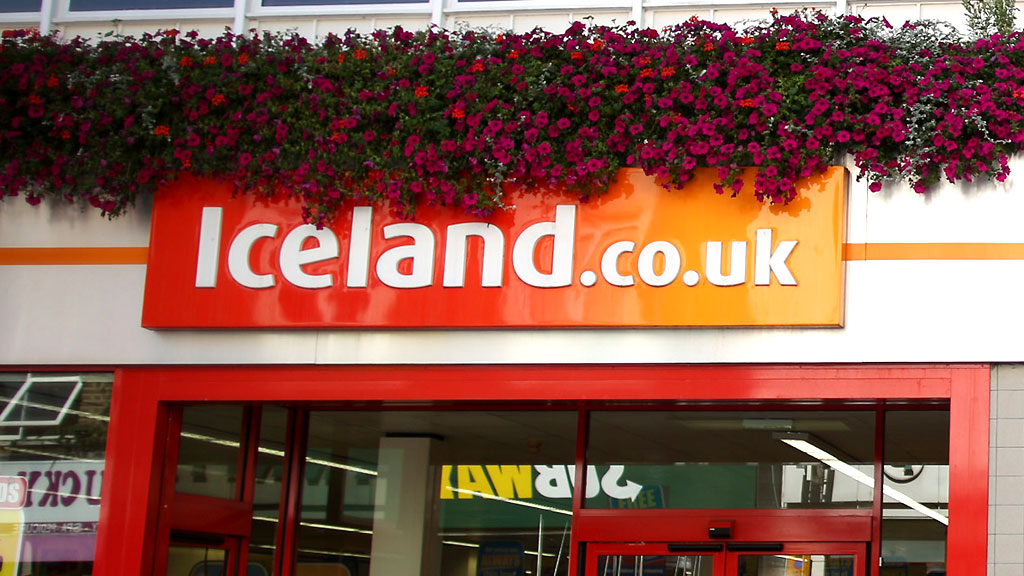CPS drops case against #Iceland3 over food theft
Charges are dropped against three men accused of stealing food from a skip outside a branch of Iceland, after the supermarket questioned the criminality of taking £33 of wasted food.

The items in question make up a humble swag: mushrooms, tomatoes, cheese and Mr Kipling cakes, worth £33, allegedly taken from a waste bin outside an Iceland store in Kentish Town, north London.
Three men had faced charges for the theft, which took place last October. But the Crown Prosecution Service (CPS) on Wednesday reversed its decision, saying that the charges would be dropped.
“While the decision to charge was taken by the Metropolitan Police Service, a subsequent review of the case by the CPS did not give due weight to the public interest factors tending against prosecution,” said Baljit Ubhey from the CPS. “In reconsidering this case, we have had particular regard to the seriousness of the alleged offence and the level of harm done. Both of these factors weigh against a prosecution.
“Additionally, further representations received today from Iceland Foods have affected our assessment of the public interest in prosecuting.”
We hope this demonstrates our willingness to review decisions and take appropriate and swift action when necessary – CPS
The decision follows a statement from Iceland’s chief executive Malcolm Walker, who said he wasn’t aware of the incident, or the prosecution, until media reports circulated on Tuesday. The company said it had the contacted the CPS to ask why the three men were being taken to court, and was at pains to say it had not contacted the police, or instigate the prosecution.
The three men live in a squat in Kentish Town, and had reportedly been charged under the 1824 Vagrancy Act, for being found by police in “an enclosed area, namely Iceland, for an unlawful purpose, namely stealing food”.
Paul May, 35, a freelance web designer, is one of the men who was allegedly “skipping” – taking wasted food from a skip. The Guardian reported that he had planned to argue in court that his actions were not illegal because the food would have been going to waste otherwise – and that the three of them were using it to avoid going hungry.
Ms Ubhey added: “We hope this demonstrates our willingness to review decisions and take appropriate and swift action when necessary. The Crown Prosecution Service is committed to bringing the right charges to court when – and only when – it is proper to do so.”
Delighted @cpsuk has agreed to drop the Kentish Town prosecution – though it’s hardly the “Iceland Foods case” as we knew nothing about it!
— Malcolm Walker (@MalcolmCWalker) January 29, 2014
Waste food: store is next to a police station. We did not call police, did not seek prosecution & I knew nothing before today’s Guardian!
— Malcolm Walker (@MalcolmCWalker) January 29, 2014
We waste less food than almost any other store – & only waste stuff that is unfit to eat, which we are legally unable to sell or give away
— Malcolm Walker (@MalcolmCWalker) January 29, 2014
Food waste figures

The news of the prosecution caused a storm of outrage on Twitter and a petition to try and get the charges dropped. And in a masterstroke of ironic timing, the story emerged on the eve of the British Retail Consortium’s announcement that UK retailers had pledged to reduce food waste.
Following Tesco’s publication of its figures last year, showing that it generated 28,500 tonnes of food waste in just six months, other supermarkets are now getting on board: Asda, Sainsbury’s, Morrisons, Marks & Spencer, Waitrose and the Co-operative, will collectively release regular updates on the amount of food thrown out by stores from early next year, the British Retail Consortium (BRC).
In its statement on the CPS charges, Iceland was keen to say that it works with suppliers to try and minimise food waste. The retailer added: “We sympathise with those who are struggling to meet their food bills.”
800m meals wasted
The government’s waste reduction advisory body, the waste and resources action programme (Wrap), says that 15 million tonnes of food are discarded every year in the UK. That is the total from households (which accounts for 7m) as well as from the supply chain and retailers.
Some of this is unavoidable, and goes back into the food system. But the charity Fare Share, which aims to redistribute food wastage to charities who can use it to feed those who need it, says that there are about 300,000 to 400,000 tonnes a year that could be put to good use – enough for 800 million meals.
Fare Share’s food director Mark Varney told Channel 4 News that most of the surplus food is generated before the food actually gets to the supermarket, because of high consumer demands and the sophisticated system the UK has in place to try and meet them. Much of their work is in partnership with supermarket distribution centres – before the food gets onto the supermarket shelf.
“We have a very complex retail and manufacturing system,” he said. “Inevitability that there is some waste. But we would call for on the industry to do a lot more to redistribute. The odd thing is that the surplus doesn’t have an economic value – but it is still valuable.”